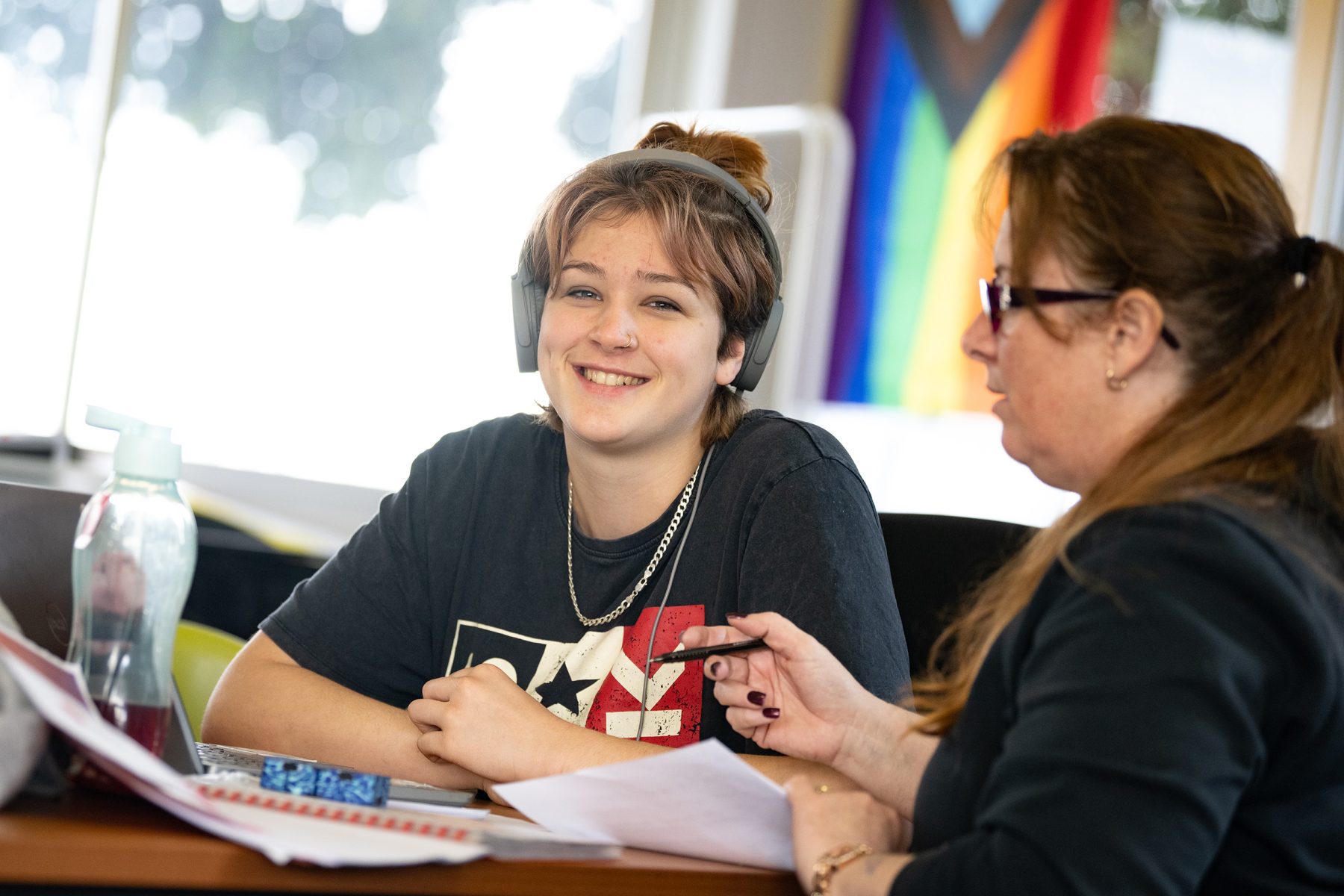Research-Informed Approach
Flexi staff are trained to figure out what kinds of skills are preventing a young person to behave well, what kind of situations result in challenging behaviour and how these gaps in skills can be developed to engage and motivate young people in their learning journey.
Through the following evidence-based practices, we focus on building trust with young people to transform their idea of what it means to learn.
| Alternative Education | Flexible education has shown to be highly effective for young people who have disengaged from mainstream schools. The less rigid structure supports emotional wellbeing and lifts some of the pressures experienced in more traditional, mainstream schools. This structure also creates more opportunities for young people to feel safe and understood, so they can focus on learning and personal development. |
| Trauma aware Education | Many of the young people who come to Flexis have experienced personal trauma, which has exacerbated feelings of isolation, school refusal and a negative association with learning and education. Trauma aware education works to combat this, by recognising the impact of trauma on a young person’s development, learning and behaviour, and working to manage or dismantle triggers of trauma. |
| Working Relationally | Working relationally refers to building and nurturing positive, supportive relationships between educators and young people. Building relationships with students requires a cognitive shift from relaying instruction to recognising the importance of creating an environment where young minds feel listened to, understood and valued. |
| Collaborative Problem Solving | Collaborative Problem Solving (CPS) is an evidence-based, trauma-aware practice proven to reduce challenging behaviour, teach young people the skills they lack and build strong relationships. CPS is built on the simple idea that all young people want to do well and behave well, and if they are not able to, it is simply a lack of skill rather than a lack of desire. |
| Creating Calm | As learning takes us into unfamiliar territory, understanding how to create calm in classrooms is essential. For many young people, especially those who have experienced trauma, exploring unknown topics can lead to stress and anxiety. Flexis’ educators work hard to cultivate a calm, positive and safe learning experience so our young people can be in a positive mindset to learn. |
Strengths-Based LanguageandStrengths-Based Approaches | Strengths-based language focuses on identifying and emphasising positive skills and potential of young people, rather than building on a pre-determined or assumed deficit. For Aboriginal and Torres Strait Islander peoples, this is particularly important due to the historical narratives of deficit that have influenced the ways in which Australia’s education system has supported and encouraged Indigenous students. |


